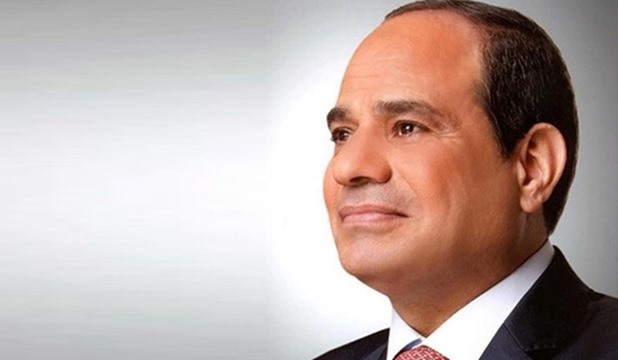The world stands at a pivotal juncture in the fight against climate change, resonating with an air of global collaboration and urgency. The action has drawn interest from all across the world in what seems to be a cooperative effort to face significant changes in climate change, with those involved concentrating on analysing the progress made.
President Ruto organised a global climate conference earlier this year to plan, imagine, and build a prosperous future for Africa and the rest of the world. President Ruto adopted a firm stance about the climate change conference in Nairobi during his speech. He said that rather than drawing attention to differences or examining who is accountable for what in terms of climate change, the purpose of the climate change conference in Kenya’s capital city was to establish a stable and dignified livelihood.
“Therefore, this is no ordinary summit. We are not here just to talk about Africa or climate change in the usual way, which often accentuates our divisions—north versus south, developed versus developing, polluters versus victims. And even within our governments, economic development, so badly needed for us to achieve stable and dignified livelihoods, is often cast as a trade-off with environmental stewardship, as if they are mutually exclusive when they must be positively reinforcing.” President Ruto.
For this reason, from November 30, 2023, to December 12, 2023, in Dubai, United Arab Emirates, the globe is gathering for the Cop 28 United Nations Climate Change Conference. The conference’s primary goal is to reach a consensus on solutions to the climate crisis, like keeping the global temperature to 1.5 degrees Celsius, assisting communities that are most at risk from the effects of climate change, and reaching net-zero emissions by 2050. The parties that make up the UN Framework Convention on Climate Change (UNFCCC) are among the participants. Leaders in business, youth, scientists studying climate change, journalists, Indigenous Peoples, and other specialists and interested parties.
The elimination of fossil fuels from the African economy is one crucial topic that has come up at the current climate summit. This is because the African continent is home to what is referred to as sizable reserves of various fossil fuels. This includes, among other things, natural gas, coal, and oil. Carefully noted, the United Nations states that most of these fossil fuels are used either outside of Africa or not on the continent. This raises questions about the future and the possibility that fossil fuels will need to be developed within the framework of a low-carbon growth path.
Insights on Fossil Fuels in Africa
Crude oil, natural gas, and coal are examples of fossil fuels, which are significant energy sources essential to African nations’ economies and energy systems. With over 9.5%, 8%, and 4% of the world’s proven stocks of coal, natural gas, and crude oil, respectively, Africa has great potential for fossil fuels (BP, 2011). About half of Africa’s primary energy supply and one-third of its total energy consumption, excluding the region’s contribution to electricity production, come from these resources.
Additionally, according to the same source, almost 80% of the electricity produced on the continent comes from fossil fuels. Around 50 to 80 percent of government revenue in Africa’s major oil and gas-producing nations comes from these energy resources (Zalik and Watts). For instance, 60 percent of government revenue in Algeria comes from natural gas exports, while 80 percent comes from oil exports in Libya, Nigeria, and Angola. These numbers imply that a significant portion of the fossil fuels generated in Africa are used abroad.
More remarkably, the continent nevertheless faces significant energy-related issues despite these massive energy resources. These challenges include limited modern energy access, inadequate energy infrastructure, low efficiency, and a lack of institutional and technical competence to harness these tremendous resources. For instance, only over 31% of people in Sub-Saharan Africa have access to power, with electrification rates in urban and rural areas roughly 60% and 14%, respectively. Furthermore, traditional biomass accounted for approximately 50% of the region’s overall energy supply in 2008, dominating energy consumption. These energy-related issues have impeded economic expansion, which has increased the continent’s economic and energy poverty.
Despite these obstacles, Africa’s enormous fossil fuel reserves offer fantastic chances to enhance energy availability, quicken economic progress, and lessen poverty. However, many environmental and socioeconomic issues at the local, regional, and global levels have been exacerbated by the heavy reliance on fossil fuels to provide energy. These issues include the depletion of non-renewable resources, the thinning of the ozone layer, acidification, global warming, and more. Due to the emissions of carbon dioxide (CO2) and other greenhouse gases (GHGs) produced by the combustion of fossil fuels, which have intensified the effects of climate change, energy generation substantially contributes to the latter.
According to the report, in 2008, over 65% of the world’s greenhouse gas emissions came from burning fossil fuels for energy. There are issues with this tendency continuing.
Resolutions from the Cop 28 Summit.
Crude oil-producing countries reject the idea of ending crude oil production to halt climate change.
The top crude oil producers include the US, Russia, Saudi Arabia, China, Iran, Iraq, and Canada. Each of them has a voice regarding the cessation of crude oil production. For example, in the US, the Biden Administration stated, “I have considered your petition and have decided not to initiate the rulemaking you requested,” in response to a petition filed on January 19, 2022, by the Centre for Biological Diversity and several other environmental organisations, asking for the rate of oil and gas production on public lands and waters to be reduced to almost zero by 2035.
This indicated that the administration should have taken seriously the petitioners’ and hundreds of environmental organisations’ suggestions to stop producing oil and gas on public lands by 2035. However, President Volodymyr Zelenskyy stated that Moscow found the $60 price cap on its oil set by Kyiv’s Western partners to be “quite comfortable” and threatened to respond. Kyiv had pushed for a lower cap. On Saturday, Dmitry Peskov, a spokesperson for the Kremlin, stated that Russia would not accept the price cap and that it needed to assess the circumstances before determining how to respond.
At the United Nations climate meeting in Dubai, where nations are debating whether to call for a phaseout of fossil fuels to combat global warming, the world’s largest oil exporter has emerged as the main impediment to an agreement. Any wording in a settlement that would even allude to fossil fuels—the coal, oil, and gas that, when burned, produce emissions that are dangerously warming the planet—has been categorically rejected by the Saudi delegation. A clause that aims to triple the amount of renewable energy produced globally by 2030 and is supported by at least 118 nations has also been met with opposition from Saudi negotiators.
But things have changed this year, which is the most intense on record. A collection of small island governments, whose nations are most vulnerable to sea level rise and other climate-related extreme weather events, want the summit to formally declare that the era of coal, oil, and natural gas should soon end. They have established the “fossil fuel phaseout” as their primary goal for the COP28 negotiations, with help from Europe.
As COP28 draws to a close, the world awaits the collective resolve and actionable commitments that will determine the trajectory of our planet’s environmental legacy. The deliberations in Dubai hold the promise of transformative agreements and collaborative efforts essential for steering humanity towards a greener, sustainable future for generations to come.


